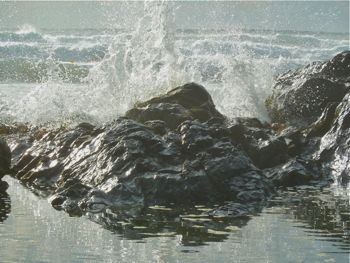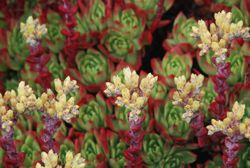LGS #88, Developing Discernment and Guidance Skills, Part 2: How Can I Tell an Emotional Issue from a Physical One?

How can I tell an emotional issue from a physical one?
Let us consider protocols for making this discernment. We will look in the next post at using internal sensing. Internal sensing can work well when working on yourself. Protocols work well with clients, but I also use them when I work on myself. Using protocols on oneself increases objectivity and helps to maintain focus.
Protocols important are like learning the scales for a musician. Once we have them internalized they retreat into the background. We can improvise well without them. Our skills are less extensive and flexible without learning them first. It is important not to be limited to protocols alone. Healing is an art. Ideally, we use more-objective indicators and subjective sensing together, working from both sides of the brain.
The protocols I use to see if emotion is primary/first priority come from several types of practitioner training. These systems rely on muscle testing, which I do using my hand muscles. There are several ways to do this. I describe the easiest one below.
 Accuracy with self-testing and with non-orthopedic muscle testing takes dedication. Entire trainings are dedicated to achieving consistent results. These trainings focus primarily on physiological and energetic issues that can compromise results, such as dehydration, toxicity, or upper neck misalignment. They touch on emotional interference–on how to get around it during testing to get clear results.
Accuracy with self-testing and with non-orthopedic muscle testing takes dedication. Entire trainings are dedicated to achieving consistent results. These trainings focus primarily on physiological and energetic issues that can compromise results, such as dehydration, toxicity, or upper neck misalignment. They touch on emotional interference–on how to get around it during testing to get clear results.
Learning to get accurate results when emotional issues are present is challenging. I attended several extensive trainings to address uprooting emotional sabotage. This work addresses unconscious interference with testing and also with health, success, intimacy, etc. Addressing unconscious emotional resistance to positive goals is, in my opinion, an essential skill for working successfully with tricky cases.
With respect to our own emotions, we are all tricky cases. 🙂
Muscle testing without extensive work with sabotage may be inaccurate. Muscle strength is easily altered by emotion. One must be able to recognize and address interference from resistance to seeing aspects of oneself.
Don’t let the above discourage you! Learn to recognize exactly what it feels like when your testing is not clear. Then lean in and work to get underneath your resistance and face down any related issues.
When you get information that is inconsistent, doesn’t feel right, feels biased, or if you get suddenly vague, tired or tense these are major clues that an emotional issue is present. Watch your breathing pattern, jaw, shoulder, and stomach tension for more clues.
Protocols:
Some systems of healing use two points, one right above each eyebrow, or lay a hand across the whole forehead. If a strong muscle goes weak or a weak muscle changes to strong, these points indicate that emotion is primary at the moment.
“Cross-checking” to find out whether a physical area of discomfort, such as a sore muscle or organ, is being impacted by emotion:
Place one hand over the distressed area and test a muscle. Place the other hand over the forehead points and see if the muscle you are using to test goes from strong to weak or weak to strong.
You have a few seconds to test while the nervous system retains information from touching the two areas, so you can let go and then test if you’re working on yourself.
You may be able to feel your energy change when you touch an indicator area. If you are highly sensitive you might attend to this change instead of using muscle testing, but it works better to use them together.
Hand Mudra Test with O-Ring Testing:
Touch your (or a client’s) ring finger to the thumb on the same hand and pull them apart gently to see whether this circuit–the energy holding the two together–remains strong.
(Make an O with your Left hand and see if the circuit is strong by putting your Right middle finger inside the O and seeing if it pulls through the junction where the thumb and ring finger connect, or if that junction remains strong.)
If this circuit is weak, emotional involvement (or endocrine issues) is a body priority at the moment. When emotion is primary the forehead points will also be weak. (If not, the issue is likely to be endocrine.)
Acupressure Meridian End Points:
Depending on the system used, the points used for emotions are mostly on the fingers and the face. Each point is related to specific emotions associated with each organ. These points are very helpful for pinning down the exact emotion.
A number of different systems such as AK (Applied Kinesiology) and EFT (Emotional Freedom Technique) tap acupressure points to clear emotion. Their maps vary. You would need a map of the points and a list of the Chinese organ-emotion relationships. Points that test weak or sore points can be used to determine which emotion is active. Lists that include less-common emotions for each organ, in addition to those considered primary, are far superior. I like this method of discovering exactly which emotions are active.
Self-discovery is highly rewarding, and these tools are useful.
How do YOU feel about learning a protocol to increase your discernment between body symptoms and emotion?
How would greater access to what is going on inside impact your life?


























